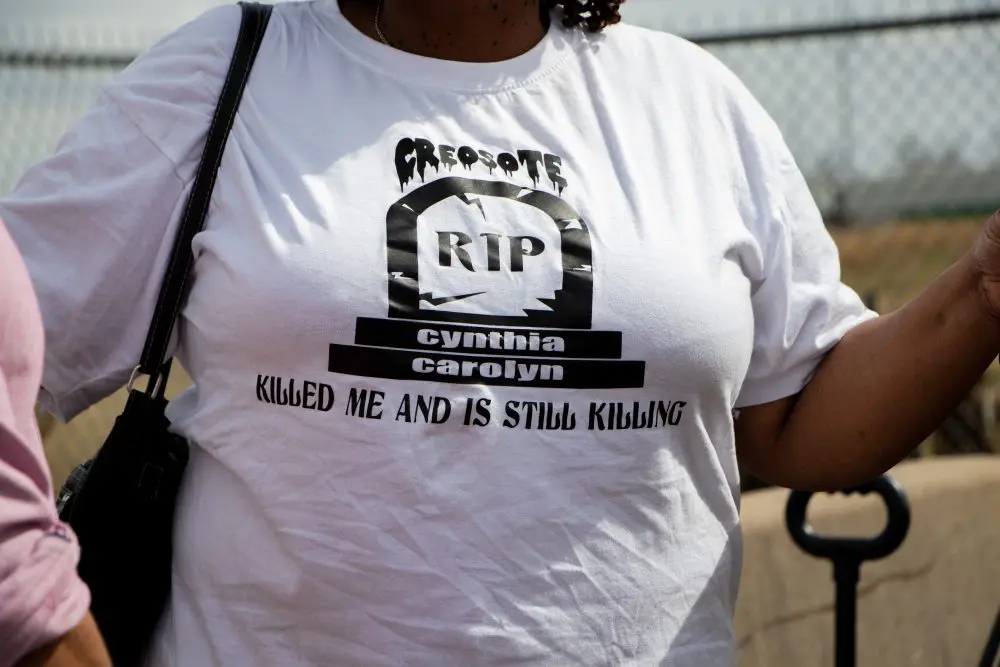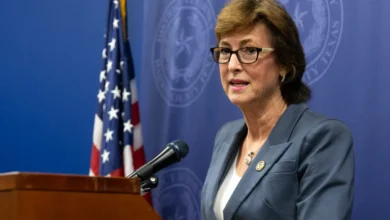The Environmental Protection Agency (EPA) extended a deadline for Union Pacific to collect soil samples for potential cancer-causing chemicals near a contaminated railyard in Houston’s Fifth Ward.
The railyard has been the source of contention for years after creosote, a likely human carcinogen, was discovered in nearby groundwater. Fifth Ward residents have repeatedly raised questions about abnormally high cancer rates in the area.
The latest extension, which is set to end this Saturday, Nov. 30, came after U.S. Rep. Erica Lee Carter called on the EPA to wait until more samples could be collected before determining if there’s a risk to residents and whether cleanup is necessary. Lee Carter carried on the work after her mother, the late Congresswoman Sheila Jackson Lee, led efforts to address the area’s cancer clusters.
One barrier that has stalled the effort is getting homeowners to agree to have soil sampled on their property.
“With this extension, we hope to overcome the barriers that have delayed property access and engagement,” Lee Carter said in a statement. “It is imperative that we reach every property owner to make sure they understand the significance of this project and their role in it to keep our community and environment safe.”
Cancer-causing chemical compounds called dioxins were discovered in the soil near the contaminated site years ago. Last year, the EPA directed Union Pacific to begin conducting investigations throughout the area to detect the presence of harmful chemicals in the soil of nearby homes and businesses.
Union Pacific began collecting soil samples at the Boyce-Dorian Park in Houston over the summer. The railroad company had originally planned to wrap up the work by September, but the deadline was extended. Now it’s been extended again.
Robynn Tysver, a spokesperson for Union Pacific, said Monday that 185 homeowners had signed access agreements for soil sampling on their properties.
“Union Pacific has worked diligently over the last 15 months to make residents aware of the need to sign access agreements in order for testing to occur on their properties,” Tysver wrote in an email. “Representatives canvassed the neighborhood door-to-door six times.
“In addition, seven mailers went out to property owners and a social media campaign that included paid advertising was launched to provide information and broader reach,” she added.
The Houston Health Department’s original findings of the cancer-causing chemicals showed traces of 41 creosote-related chemicals, including six cancer-causing chemicals — like benzene — that exceeded the EPA’s screening levels. However, the data that’s been collected “has not indicated a need for an immediate response,” officials have maintained.
A recent study conducted by Texas A&M University researchers deduced that toxic levels of lead found in the soil of some Fifth Ward residential areas are “four times the levels for Texas overall.”
Most recently, samples taken by university researchers revealed about 400 mg/kg of lead detected in play areas and 1200 mg/kg of lead in residential areas of the Fifth Ward.
Sandra Edwards, an activist who has lived near the contaminated and investigated railyard for more than 50 years, said residents deserve compensation.
“That means now that people that have been here all our lives, you owe us,” she told Houston Public Media earlier this month. “Rebuild our houses, clean our property. Help us now.”
Edwards said she had been on the fence about moving out of the neighborhood where she’s spent much of her life. She’s seen a handful of neighbors in the contaminated area die of cancer.
“Look at how many families we’ve buried,” she said. “We are out of money now. People are out of money now after having funeral, after funeral, after funeral.”







